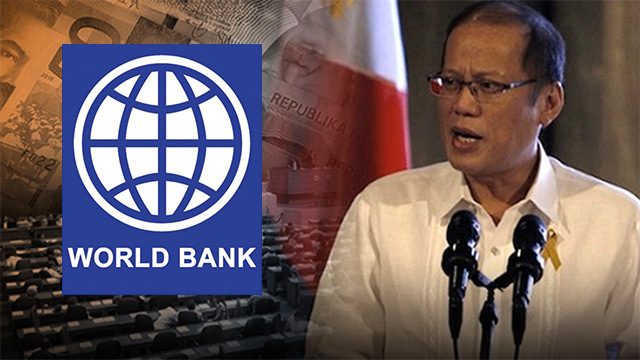SUMMARY
This is AI generated summarization, which may have errors. For context, always refer to the full article.

MANILA, Philippines – The World Bank remains optimistic about prospects for the Philippines, even maintaining its growth forecasts for the country until 2017, despite the sluggish gross domestic product (GDP) of 5.2% in the first quarter.
The Global Economic Prospects (GEP) report released by the World Bank Thursday, June 11 showed that the forecast for the Philippines is 6.5% in 2015; 6.5% in 2016; and 6.3% in 2017.
The GEP already takes into account the Philippine economy’s performance in the first quarter. The report added that growth in the Philippines is projected to remain strong, benefitting from a recovery in Japan and low fuel prices.
“We see the rest of the quarters of the year showing a different pattern. We know the agencies are working very hard to ramp up spending,” said Rogier van den Brink, lead economist for the World Bank in the Philippines.
Focus on the growth story
But Van den Brink said in a press conference on the sidelines of the Asia-Pacific Economic Cooperation (APEC) Senior Finance Officials’ Meeting in Bagac, Bataan, on Thursday, said that if “you focus solely on these growth forecasts, you will miss on what I think is the more important and emerging story about the Philippines.”
“For me, as an economist working for an institution committed to the eradication of extreme poverty, the real story is this: the Philippines has achieved macroeconomic stability, high growth rates, and, more recently, is starting to show the kind of growth which is more inclusive,” he added.
The World Bank official said that about two or three decades ago, stories on the Philippines are often about boom-and-bust cycles related to macroeconomic instability. Real growth was low. Inflation rates were high, the current account balance was negative, budget deficits were high, and national government debt soaring, he said.
“In the last several years, these issues are no longer a major concern. We are starting to see that the sustained high economic growth in recent years is translating into stronger job creation,” he said.
But Van den Brink said the World Bank will continue to monitor the GDP numbers and see if there is a need to tweak their forecasts given current global and regional developments.
The relatively small changes in the growth numbers per se are secondary to the bigger story that matters: the country has established a clear trajectory toward growth that is more inclusive, Van den Brink said.
“Continuing reforms will ensure that the country will maintain this momentum,” he said. – Rappler.com
Add a comment
How does this make you feel?
There are no comments yet. Add your comment to start the conversation.